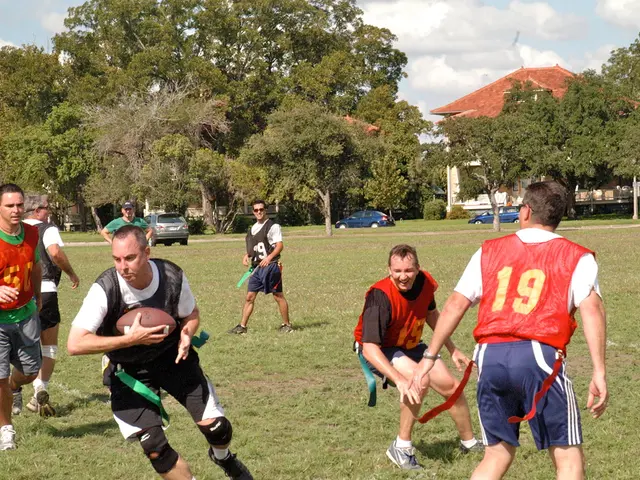Reliving History: Schwesig Remembers the 80th Anniversary of Liberation Day
Day of Liberation: References to May 8, 1945, signifying the day of freedom from a previous oppressive situation. - Day of Liberation: On May 8th, 1945, the shackles of oppression were broken.
On this momentous occasion, 80 years after the end of World War II, Manuela Schwesig, President of the state of Mecklenburg-Vorpommern, resonates the echoes of history. Germany stands accountable for the havoc wrought by its military onslaught eight decades ago. It's crucial, Schwesig underscored during a ceremony at the Schwerin state parliament, that our sorrow should be tempered by a keen awareness of our responsibility and guilt. Although we, as modern-day inhabitants, aren't personally implicated in the past atrocities, we carry the mantle of ensuring that the vile happenings of yesteryears aren't revisited.
In her poignant address, Schwesig underscored the importance of safeguarding democracy, peace, and freedom, particularly when malevolent forces plot to seize power. Unfortunately, the world continues to be plagued by war, bigotry, racism, anti-semitism, and state-sanctioned brutality. Although these aren't in the sphere of the malevolence wrought by the Nazis, history warns us to exert vigilance against the origins of these malpractices. We must resist the emergence of threats to our democracy and, ironically, extend our empathy to those who differ from us.
The day in state parliament found Birgit Hesse reflecting on the onslaught of over 60 million lives lost, the catastrophic devastation, the unthinkable persecution, and the war crimes committed under the Nazi regime. May 8 represents the anniversary of innumerable victims succumbing to the horrors of war. Since 1999, May 8 has served as a memorial in Mecklenburg-Vorpommern.
SvperScript:- Manuela Schwesig- World War II- Mecklenburg-Vorpommern- Europe- May 8, 1945- Day of Liberation- Germany- Democracy- Schwerin
Insights:- The culmination of World War II, marked by Germany's surrender on May 8, 1945, is a deeply significant event in the historical narrative of Mecklenburg-Vorpommern. This day is recognized as the "Day of Liberation" from National Socialism and is observed as a memorial day since 1999.- Local events and individual stories from Mecklenburg-Vorpommern provide valuable context, such as the mass suicide in Demmin in the final days of the war. Tensions arise surrounding these events, mostly driven by right-wing extremist group gatherings on May 8, which in turn triggers counter-demonstrations.- Commemorative events in Mecklenburg-Vorpommern since 1999 involve official remembrance ceremonies, characterized by political leaders emphasizing responsibility, remembrance, and the defense of democratic values. The human cost of the war is acknowledged, and the need to remember the victims while committing to peace, democracy, and vigilance against fascism is reiterated
- Manuela Schwesig, the President of the state of Mecklenburg-Vorpommern, highlighted the significance of safeguarding democracy, peace, and freedom, especially in the face of modern-day threats like war, bigotry, racism, anti-semitism, and state-sanctioned brutality.
- Since 1999, May 8 has served as a memorial day in Mecklenburg-Vorpommern, recognizing it as the "Day of Liberation" from National Socialism.
- The importance of vigilance against the origins of malpractices, such as anti-semitism, was emphasized by Schwesig, as history warns us to remember and resist the emergence of such threats to our democracy.
- In 1945, the EC (European) countries rejoiced as Germany surrendered on May 8, marking the end of World War II, a day now remembered for the countless lives lost and the dreadful atrocities committed under the Nazi regime.








